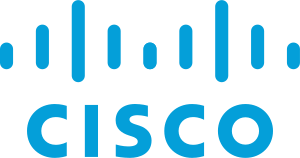Cisco Network Manager Course
Manage and properly maintain your organisation's networks.
StudyOnline247
Summary
- Exam(s) / assessment(s) not included in price, and must be purchased separately
Overview
The skills gained from this course will enable you to plan and perform regular maintenance on complex enterprise routed and switched networks. You will also gain the required knowledge to use technology-based practices and a systematic ITIL-compliant approach to perform network troubleshooting.
The Cisco 300-135: CCNP – TSHOOT – Troubleshooting and Maintaining Cisco IP Networks training course is designed to provide you with the knowledge and skills relating to the troubleshooting and maintenance of Cisco IP networks.
This training course is one of the courses required to achieve your Cisco CCNP Routing and Switching certification and will assist you in pursuing a career as a Cisco Network Manager.
Certification
Cisco Certified Network Professional (CCNP)
Description
What you will learn:
Troubleshooting Switches
Troubleshooting Spanning Tree Protocol
Troubleshooting Switch Security Features
Troubleshooting IPv4 and IPv6 addressing
Troubleshooting management protocols
Why study online?
Technological improvements and advances in educational design mean that studying online is no longer just a low cost alternative to traditional training methods. In many respects our online courses offer training which is superior to the majority of available “classroom” options.
Not only is the effectiveness of the training process enhanced, but also the convenience and overall cost efficiency of studying online makes it a compelling option for training. You can learn at your own pace and can repeat each section as many times as required unlike in a classroom environment.
Studying at your own pace, rewinding and going over the material as often as you need improves your long-term memory retention and makes studying more rewarding.
Curriculum
Module 1: Introduction to Cisco Troubleshooting
Introduction
Troubleshooting And Maintenance
IOS Troubleshooting Commands
Remote Data Gathering
Introduction To Graphical Troubleshooting Tools And Review
Module 2: Troubleshooting Switches
Troubleshoot Catalyst Switches
Troubleshoot TCAM
Module 3: Troubleshooting VLANs and Trunking
Troubleshooting VLANs And Trunking – Part 1
Troubleshooting VLANs And Trunking – Part 2
Troubleshooting VLANs And Trunking – Part 3
Trouble Ticket 1 VLANS
Module 4: Troubleshooting Spanning Tree Protocol, EtherChannel
Spanning Tree Protocol
STP Port Configuration
Ether Channel
Trouble Ticket 2-Trunking
Module 5: Troubleshooting InterVLAN Routing and Layer 3 EtherChannel
Troubleshooting Inter-VLAN Routing
Troubleshooting Layer 3 Ether Channel
Module 6: Troubleshooting Switch Security Features
Troubleshoot Switch Security – Part 1
Troubleshoot Switch Security – Part 2
Trouble Ticket 3-Switch Security – Part 1
Trouble Ticket 3-Switch Security – Part 2
Module 7: Troubleshooting FirstHop Redundancy Protocols
HSRP
VRRP
Questions
Trouble Ticket 4
Module 8: Troubleshooting IPv4 and IPv4 Addressing
IPv4 Addressing DHCPNAT – Part 1
IPv4 Addressing DHCPNAT – Part 2
Trouble Ticket 5
Trouble Ticket 6
Module 9: IPv6 Addressing and Addressing Technologies
IPv6 Addressing and Addressing Technologies
Module 10: Troubleshooting IPv4 and IPv6 ACLs and Prefix Lists
IPv4 ACLs
Prefixlists IPv6 ACLs
Trouble Ticket Access Control List 1
Trouble Ticket Access Control List 2
Module 11: Troubleshooting GRE and Basic Routing Tunnels
IPv4 Routing – Part 1
IPv4 Routing – Part 2
IPv6 Routing
GRE Tunnels
Module 12: Troubleshooting RIPv2 and RIPng
RIPv2
RIPng
Module 13: Troubleshooting EIGRP
EIGRP
EIGRP For IPv6
Trouble Ticket 1
Trouble Ticket 2
Module 14: OSPF and OSPFv3
OSPF – Part 1
OSPF – Part 2
OSPFv3
Trouble Ticket 1
Trouble Ticket 2
Trouble Ticket 3
Module 15: Troubleshooting Route Maps and Policy Based Routing
Troubleshooting Route Maps and Policy Based Routing
Module 16: Troubleshooting Redistribution
Verifying Redistribution Configuration
Troubleshooting Redistribution With Route Maps
Module 17: Troubleshooting BGP
BGP Overview
BGP Configuration – Part 1
BGP Configuration – Part 2
Trouble Ticket 1
Trouble Ticket 2
Module 18: Troubleshooting Management Protocols And Tools
SPAN And RSPAN
Module 19: Management Access Troubleshooting
Conclusion
Please note that the official exam is not included, however for those who complete the course, they will receive a completion certificate upon request.
Who is this course for?
The Cisco 300-135: CCNP – TSHOOT – Troubleshooting and Maintaining Cisco IP Networks training course is ideal for those IT professionals who have a minimum of one year’s networking experience and are looking to take their networking career to the next level.
Requirements
To study any of the CCNP training courses, you will first be required to obtain your CCNA certification.
Career path
Cisco Network Manager
IT Network Analyst
IT Network Engineer
3rd Line IT Support Technician
Senior Network Consultant
Cisco Network Administrator
Network Installation Officer
Questions and answers
Currently there are no Q&As for this course. Be the first to ask a question.
Reviews
Currently there are no reviews for this course. Be the first to leave a review.
Legal information
This course is advertised on reed.co.uk by the Course Provider, whose terms and conditions apply. Purchases are made directly from the Course Provider, and as such, content and materials are supplied by the Course Provider directly. Reed is acting as agent and not reseller in relation to this course. Reed's only responsibility is to facilitate your payment for the course. It is your responsibility to review and agree to the Course Provider's terms and conditions and satisfy yourself as to the suitability of the course you intend to purchase. Reed will not have any responsibility for the content of the course and/or associated materials.


